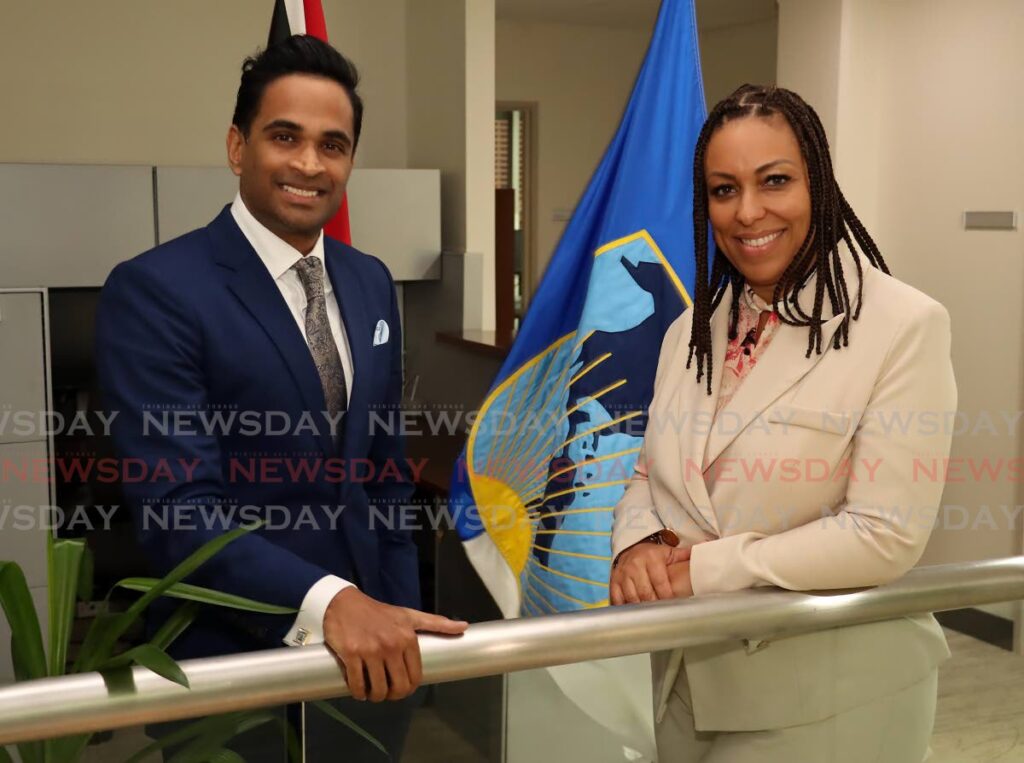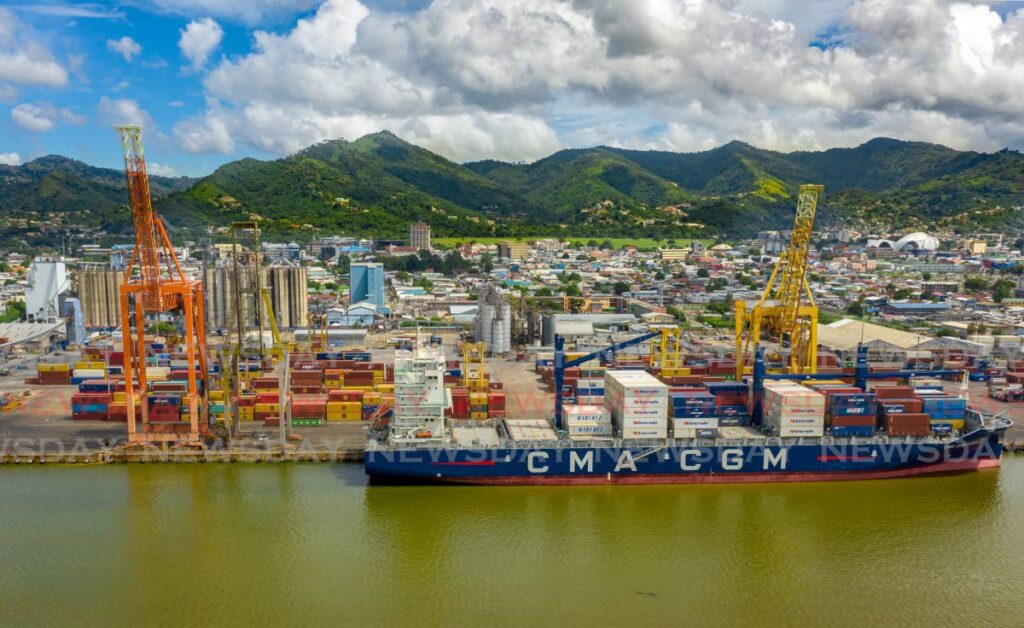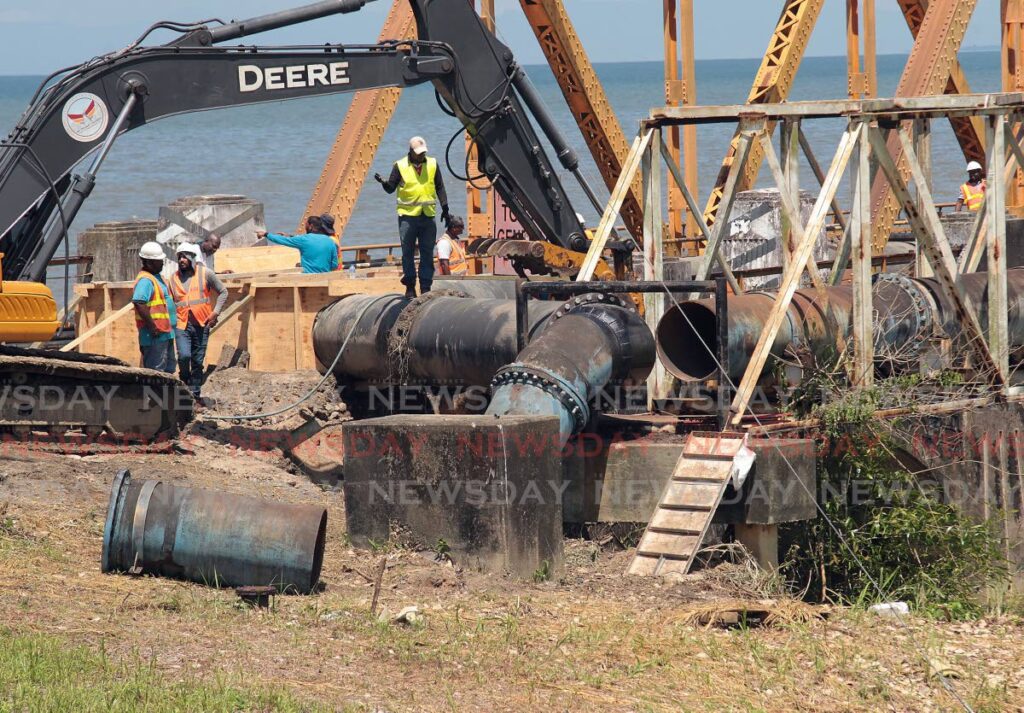IDB focuses on building nations, not the bottomline

DEVELOPMENT is what the Inter-American Development Bank (IDB) is all about. Established in 1959, the bank works to improve lives in Latin America and the Caribbean through financial and technical support for countries working to reduce poverty and inequality.
Its relationship with TT is about 50 years old and has collaborated on multiple national development projects from as far back as 1967.
TT ministers were among several officials and stakeholders at the ninth annual consultation of Caribbean Governors of IDB Group held at the Hyatt Regency, Port of Spain, where government held various conversations with the IDB, including the signing of a loan agreement and project contract for a national water-sector transformation programme.
Speaking to TT Head for IDB Carina Cockburn and general manager of the Caribbean division Tariq Ali after the consultation, Business Day was told that the meeting itself was fruitful and left many stakeholders, especially in TT, happy.
But, echoing the sentiments of IDB president Ilan Goldfajn, Cockburn said the IDB is still striving to collaborate more with member countries and making itself more available.
The IDB says that for a bank such as theirs, the bottom line is not that important. It is now focusing on its development projects and the impact it would have on the nation and the region.
Funding development
In 2021, the IDB approved US$23.4 billion in project development loans across the region. In TT, loans were approved for several development programmes in different areas such as energy, transport, SME support and science and technology. One programme focused on improving mobility in TT by adding value to existing transport infrastructure and service by promoting the adoption of technology and digital solutions saw the government get an approval for a US$225,000 loan.
On Tuesday, during the consultation the Prime Minister signed a loan contract for US$80 million for the water-sector development programme. The main objective of the project is to improve the efficiency, quality, sustainability and resilience of a potable-water supply service and water security.
The programme is expected to benefit an estimated 1,025,000 people who do not have access to a 24-hour water supply. The loan will be part of a conditional credit line where the IDB and government work on a series of interventions in one area, over a period of time. The credit line is for US$350 million.

“We know that the water-sector transformation process is a very large and complex multi-million dollar initiative which has already been worked on for years, so we must continue. We can’t give up,” Cockburn said.
She added that the US$80 million loan will deal with immediate issues such as repairing pipelines, assessing underground wells and capacity building for WASA and the Ministry of Public Utilities to manage the sector better.
“We are very excited about this because access to potable water is one of the most basic of human rights and it is just one of those issues that we just haven’t been able to move the needle in TT. So we are very hopeful that this would get things moving,” she said.
The water management project is not the only development project being funded by the IDB for TT. Cockburn said the IDB is also speaking to government about developing green hydrogen projects and have developed projects for interventions in digital transformation and enhancing the performance at the ports.
The port project preparation activity costing US$1.5 million hopes to provide support to TT in structuring activities for a public-private partnership for the cargo handling operations of the Port Authority of TT (PATT), where the Port of Port of Spain is the first and major multi-purpose port of the country.
Ali said in other areas in the region, loans were approved for infrastructural development. In Guyana, for example, the IDB signed off on a US$100 million loan for rehabilitation and construction of its road network.
“Roads are core to our development agenda,” Ali said. “It connects communities to hospitals and schools and it creates trade.”
The IDB also signed a health-strengthening loan which would fund the construction of hospitals and the creation of a framework to conduct tele-health for people who cannot access health facilities.
“If you go into the hinterlands, that is basically the Amazon forest,” he said. “It could be difficult for people to get medical assistance there so that is where digitisation can come in.”
IDB to private sector: Come to us
Cockburn said a development bank’s operations are different from that of a commercial bank. The return on investment takes a broader form than the commercial bank’s. For banks like the IDB, the approval of a loan is largely based on addressing issues in a country and improving lives in that area through projects and interventions.
“We are financing, at the core of it, development projects. That means that we have a theory of what would happen if we do something about an issue. So we look at the way the world is, and we assess how our intervention would transform the world for the better.”

Government bodies, NGOs or an association of companies would approach the bank with ideas for projects that would make lives better, and the bank assesses whether or not the project would be viable and have the desired effect.
She added that the entities approaching the bank should have some knowledge of the area in which they seek funding.
“If it’s energy then you have to know something about the energy space,” Cockburn said. “It is a collaborative process where we co-design what the project looks like.”
For the private sector, Ali said the focus may be different but the underlying principle – developing nations and improving lives – remains the common theme.
“We are not in the space of lending whimsically to any private sector entity unless we understand and are able to demonstrate what is the developmental impact of the project,” Ali said.
He added that monitoring is also a key factor in assessing the projects as it goes on.
“We have to report on the developmental effect of the project because we built the project based on the project achieving certain indicators.”
For the private sector, a lot of the IDB’s interventions come as a form of reducing risk, consultation and providing data for businesses to expand.
“We de-risk the projects by helping them to go where they haven’t gone before. Let’s say your business wants to expand to Costa Rica. We have specialists there, we have a country office and we have done studies there. So a TT company that doesn’t know about the landscape would benefit from a Latin American and Caribbean bank.”
“If you want to add a new line of business, we can provide advisory services,” she added. “If you want to develop your green portfolio or do gender-based lending for a financial institution or do something in a technical area that may not be your core business we can accompany you.”
But the IDB cannot achieve its goal of improving lives and impacting development in a positive way by itself. Cockburn said it looks to the government to present it with developmental projects and to the private sector for investors.
“What we are looking for is for the government to say here is an opportunity. This is how it could be done. Here’s how much it costs. This is how productive it is. And so the private sector can now look at that and say, 'I could replicate that and bring it to scale.'”
Describing the dialogue as “rich”, Ali said the IDB’s focus coming out of the consultation is doing more than giving approvals, but delivering far more effective results.
“We are all aware that development resources are scarce so we have to be judicious and ensure that we get the best return,” he said. “Goldfajn kept speaking about this return in terms of development effectiveness – going beyond approvals and numbers and really understanding and articulating through project design and how we structure the projects, what is the real purpose of the project.”
He said that both in the private and public sector, the IDB has opportunities to be more involved in conversations with regional bodies on development.


Comments
"IDB focuses on building nations, not the bottomline"